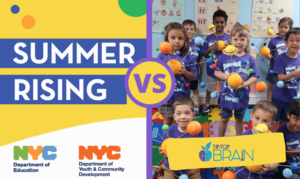In recent years, education researchers have proven the value of employing a specific practice of positive thinking as a catalyst for learning in young students. Have you ever heard the expression “the brain gets tired before the body,” when out for a run? The same could be said when it comes to learning— sort of. A lot more of our aptitude in education is determined by our mental and emotional health, and thought mindsets than is given credit. The science is in: positive thinking is powerful!
Dr. Carol Dweck and her colleagues began researching student’s attitudes towards failure decades ago. Almost immediately, here was an interesting dichotomy observed amongst students; some were easily deterred by setbacks while their peers quickly bounced back. Eventually, Dr. Dweck and her colleagues developed the terms “fixed mindset” and “growth mindset,” do describe these two propensities.
As it turns out, Dr. Dweck’s research had massive implications on education research. Most notably, many researchers posited that when students believe they can learn more, they recognize that effort is their means of getting there. Consequently, growth mindsets’ inspire student confidence, and drive students to invest additional time and effort and experience higher achievement. You can see Dweck deliver a TedTalk on the value of growth mindsets.
Cultivating a growth mindset is the gift that keeps on giving, but below are five of the biggest benefits.
1. Recognize and Confront Weaknesses
When students are equipped with a growth mindset, they’re more apt to embrace their weaknesses and overcome them. Growth mindsets allow students to see failures and deficiencies as an opportunity to learn and improve their skills. Consequently, growth mindsets, and positive thinking, take the emotional-sting off of “bad” grades. Moreover, these “bad” grade lose the power they have over students, causing less harm to student confidence.
2. Inspire Student Confidence
Once you remove the “boogeyman” of failure from school, you can much more easily inspire student confidence. No less, positive thinking can feel like an uphill battle when you’re nervous for math class each day. Moreover, when we emphasize learning and growth over achievement, learning becomes self-driven, allowing students to find their worth in education. Education researchers have shown that when we “inspire student confidence” in learning environments, student motivation increases.
3. Increased Flexibility
Roadblocks of every variety are sure to appear on any learning journey. Students with growth mindsets accept and adapt to the challenge, a consequence of not fearing failure. Those with teachers or mentors who make it a point to inspire student confidence are better suited for dealing with novel and unexpected problems. Once you inspire students, and practicing positive thinking becomes easier, challenging homework and test questions can begin to feel exciting.
4. Greater Creativity
Crafting a growth mindset will make you a more creative problem-solver. When we inspire student confidence, they’re likely to see solutions they otherwise wouldn’t. Have you ever noticed the way solutions to hard problems come to us in the shower or bed? That’s not just by elapsed time, it’s also because you’re relaxed. When stressed or fearful, creativity is stifled. Embracing positive thinking allow us to access brilliant and creative shower-thoughts while taking a test or doing our homework!
5. You’ll Get Closer
When we shed the anxiety-inducing habit of basing our self-worth on our achievements, we become more open with other people. Anecdotally, this has been demonstrated in classrooms at Tip-Top Brain. By virtue of instructors focusing on failure as an opportunity gained rather than lost, students are much more honest and open with their instructors. The insecurity failure can cause to fester can make students more reserved, and critical of their shortcomings. Once students manage to shift their perspective on failure vis-à-vis school, they can be more honest with themselves, and their friends and families.
We have all been told over and over again, the power of positive thinking. Chances are, we’ve even learned it, and preached it ourselves. From time to time, we forget the importance of having a healthy mindset that serves us. However, young learners need mentors who inspire student confidence early on, for the sake of their education and their health. Forging a healthy relationship with failure is challenging, but like many things, younger people are more inclined to learning than older folk. No less, failure is abundant as ever as a kid, so there’s no time like the present. How will you model positive thinking and a growth-mindset for your child?







